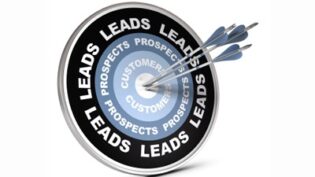
A large corporate convenience store company wants to purchase my store or a less desirable lot somewhere in town. If they were to buy another lot in town, even if not as desirable, my sales would probably drop 25% because of the pricing advantage they would have. If I were to sell them my store at its current value, after taxes and paying off debt, I would end up with less than two years’ income. There is also a possibility that they will not buy one of the less desirable locations to build a store. When is the best time to sell a business? Is there some type of formula I can follow that will help me decide? I realize there are a lot of variables at play here.
Answer:
1. Best Time to Sell a Business: You are correct that there are several important considerations when deciding to sell a business – personal retirement plans, personal income requirements, alternative investment opportunities, sales/profit trends, potential competition, real estate value trends, etc. Of course, a 25% drop in sales/profits would typically have a significant impact on business value (at least for the short term); however, in addition to the potential impact of new competition, you can review the common considerations when deciding to sell a business at the following websites, which explain:
“Timing is very important. Your business should be performing well and the likelihood that your customers will remain with the new business owner(s) should be good. The less uncertainty a buyer has to evaluate the better. Buyers will reduce their bid if an important contract may be expiring soon. In addition, buyers will want to be able to accurately predict the business’ material costs.
Advance planning is also important part of making sure your business is performing well. Many times business owners manage their business expenses to reduce their taxes. Although this is certainly a legitimate business strategy, many times buyers rely on income as reported in the tax return to serve as the basis for valuing the business. Some experts thus recommend a more arm’s length approach to tax accounting in the years immediately prior to the sale of a business. It is also important to allow enough time for the transaction. If the seller has time pressures, he or she may have to accept a lower price.
Another factor in finding the right time to sell your business is for you personally to be prepared for a significant change. As the owner and primary decision maker, you must be willing to separate yourself from your business. You cannot assume that there will be a role for you in the new organization.
Other factors over which you have less control are the level of mergers and acquisitions activity in your industry and general economic trends.”
- FAQ’s About Selling a Business: bizquest.com
- Selling a Business: bizrequest.com
- 10 Questions to Ask Before Selling Your Business: entrepreneur.com
-
-
2. Business Valuation: The business profits, cash flow, and asset values (business equipment, inventory, etc.) have to be considered to accurately assess the value of a business. Business owners often need to engage or consult professional business brokers, CPAs, or local financial professionals to provide an independent appraisal or otherwise help them value businesses. As to common valuations, certain industries have rule of thumb valuation factors, such as a multiple of revenues, cash flows (EBITDA), or net income. However, industry guidelines vary based on profit and cash flow potential and cannot always be applied to an individual situation because of asset values, rent and labor costs, financing, and other elements unique to that operation. Establishing the value of a business generally involves determining a) the value of the equipment, supplies inventory and other tangible assets and b) the value of the business customer list/contracts, sales/profit potential, and intangible assets like goodwill, etc. Historical operating results are one part of the valuation; however, businesses are generally valued more for their future potential than their past operations.
As for valuing a particular business, the best information generally involves determining the present value of future cash flows. The key financial statement is the statement of cash flows, which will yield the “cash available to service debt.” The future cash flows are then discounted to present value using a discount rate that reflects the amount of risk inherent in the forecast assumptions. The key question is “How much would someone pay for the opportunity to earn $xxx of annual income.” The answer generally depends on how secure the income is and how easy it would be for the buyer to start from scratch without buying the business. If the business has growth potential, it may be worth 10 to 20 times earnings compared to 3 to 7 times earnings for a company with limited, or no, growth potential. Service businesses may sell from 40% to 150% of revenues, for example. Also, a consideration with a personal service business owned by one or only a few individuals is the value of the customer relationships and/or contracts. You can review discussions of the common valuation methods at the following websites:
Also, for comparison purposes, you can review other businesses for sale at Internet websites like the following:
1. Best Time to Sell a Business: You are correct that there are several important considerations when deciding to sell a business – personal retirement plans, personal income requirements, alternative investment opportunities, sales/profit trends, potential competition, real estate value trends, etc. Of course, a 25% drop in sales/profits would typically have a significant impact on business value (at least for the short term); however, in addition to the potential impact of new competition, you can review the common considerations when deciding to sell a business at the following websites, which explain:
“Timing is very important. Your business should be performing well and the likelihood that your customers will remain with the new business owner(s) should be good. The less uncertainty a buyer has to evaluate the better. Buyers will reduce their bid if an important contract may be expiring soon. In addition, buyers will want to be able to accurately predict the business’ material costs.
Advance planning is also important part of making sure your business is performing well. Many times business owners manage their business expenses to reduce their taxes. Although this is certainly a legitimate business strategy, many times buyers rely on income as reported in the tax return to serve as the basis for valuing the business. Some experts thus recommend a more arm’s length approach to tax accounting in the years immediately prior to the sale of a business. It is also important to allow enough time for the transaction. If the seller has time pressures, he or she may have to accept a lower price.
Another factor in finding the right time to sell your business is for you personally to be prepared for a significant change. As the owner and primary decision maker, you must be willing to separate yourself from your business. You cannot assume that there will be a role for you in the new organization.
Other factors over which you have less control are the level of mergers and acquisitions activity in your industry and general economic trends.”
3562 Views












